Is it necessary for a diabetic to get a home blood glucose meter?
Not necessary, but must buy, diabetic patients should always test their own blood glucose value, go to the hospital to measure blood glucose is very inconvenient, because the fasting, so you go early people did not work, and so they work has been to the time to eat breakfast, very troublesome!
It is certainly necessary, especially during this time of the year, but it is also very important to have a glucose meter at home to monitor your blood sugar changes at all times.
Epidemics are unpredictable, and at any time there can be a building-wide or neighborhood-wide quarantine due to a sudden new patient, or in extreme cases, a city closure. For example, I'm currently sequestered in my department because a new case of Crown Pneumonia was suddenly found upstairs.
In this way, diabetic friends need to be prepared with treatment medicines, monitoring equipment to get a full picture of their blood sugar and ensure the use of treatment medicines.
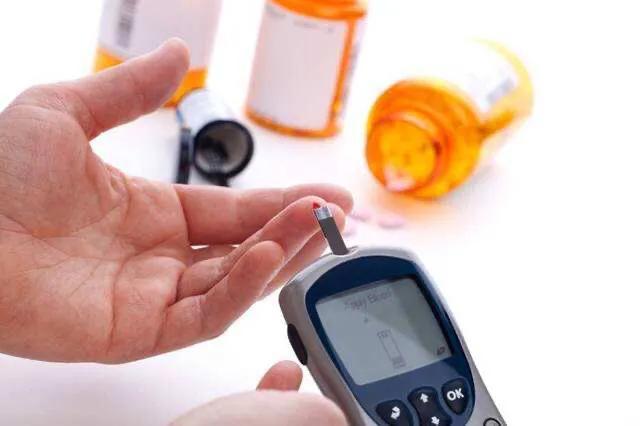
Even in normal times, without these emergencies, it is necessary to have a blood glucose meter at home, for example, to find out if you have eaten too much at this meal, forgotten to use your medication, or if you have the right amount of exercise, you need to measure your blood glucose.
More importantly, when you feel uncomfortable, such as panic, sweating, chest tightness, dizziness, etc., is it the appearance of hypoglycemia or an acute attack of myocardial ischemia? Then you need to check your blood glucose to make it clear, rather than treating it arbitrarily by thinking that you are hungry or hypoglycemic.
Home blood glucose meters are relatively easy to use and can be measured with a little instruction. It is also generally more accurate and can be a good reference for disease diagnosis and treatment.
I am Dr. Sun, pay attention to Dr. Sun talk about sugar, continue to learn about quality health knowledge, help please like, have questions please leave a message, will reply!
[Professional doctor to answer your questions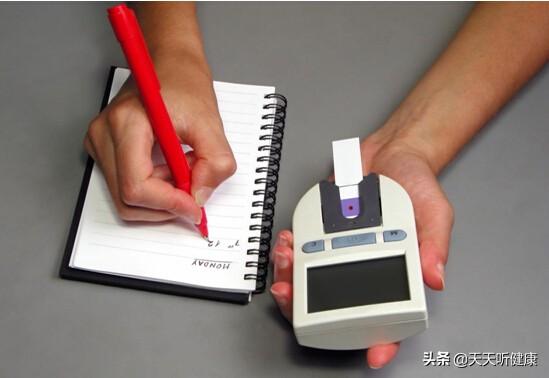 The answer to this question is of course yes, the most important thing for people with diabetes is to get their blood sugar up to standard, and there are standards to meet, depending on how high or low your blood sugar is, so it is very important to measure your blood sugar frequently. In fact, in addition to seeing if your blood sugar is up to standard, there are many benefits to measuring your blood sugar frequently, such as:
The answer to this question is of course yes, the most important thing for people with diabetes is to get their blood sugar up to standard, and there are standards to meet, depending on how high or low your blood sugar is, so it is very important to measure your blood sugar frequently. In fact, in addition to seeing if your blood sugar is up to standard, there are many benefits to measuring your blood sugar frequently, such as:
You can find out how different foods affect your blood glucose, for example, by testing your 2-hour post-meal blood glucose after eating different foods, you can know which foods have a greater impact on your blood glucose and how much you can eat to minimize the impact.
You can learn about blood sugar fluctuations, for example, by frequently measuring fasting blood sugar as well as 2-hour blood sugar after three meals, you can learn how much three meals affect blood sugar fluctuations, because in blood sugar control to not only to lower blood sugar, it is more important to keep blood sugar stable.
You can find out whether there are dawn phenomenon and Sumujie phenomenon, if the fasting blood glucose is always high, it may be that the hypoglycemia occurred at night caused by the reflex blood glucose rise in the morning, or it may be that the rapid rise in blood glucose at night led to a higher fasting blood glucose in the morning, the former is the Sumujie phenomenon needs to be adjusted the previous night's diet and reduce the amount of medication, and the latter belongs to the dawn phenomenon will require an increase in the amount of antihyperglycemic drugs in the previous night.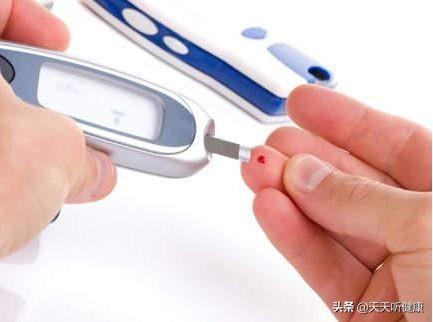
You can find out whether hypoglycemia occurs in time, when there is panic, shortness of breath, cold sweat and other discomforts, you should immediately check whether the blood glucose is too low, because of the decline in their own blood glucose regulation, such as not being able to eat in a timely manner is likely to lead to the occurrence of hypoglycemia, it is important to know that hypoglycemia is much more harmful than hyperglycemia, and severe hypoglycemia can be life-threatening.
So on and so forth, all need to undertake to test blood glucose at any time, if every time to go to the hospital is difficult to do, if you have a blood glucose meter can be very convenient to complete. At present, the detection technology of blood glucose meter has been very mature, can meet the needs of daily monitoring of blood glucose, is diabetes from the necessary intervention of one of the treatment tools.
I hope this answer can help you, welcome to click on the attention and leave a message, together to learn and exchange more health knowledge.
When you have diabetes, it is very necessary to have a blood glucose meter at home.
Talk about personal experience.In the first half of 2019 physical examination detected fasting blood sugar 7:1, at that time, the doctor said to observe again, regular checkups, if there is still such a high blood sugar, it is necessary to consider the use of medication. However, I have a physical examination every year, I have never found high blood sugar before, my family has no genetic history of hyperglycemia, and I usually feel no discomfort, so I didn't follow the doctor's request for regular checkups. In September and October, when I went to the hospital for testing, my blood sugar had climbed to 8:9. The doctor asked me to be hospitalized for a full checkup. But I always felt fine, nothing serious, did not take the medicine, and continued to delay. After this year's Spring Festival, I always felt dizzy, urinated too much, had a dry mouth, wanted to eat when I was hungry, and would be hungry again soon after I ate, and my meal size increased greatly, and I always had the feeling of not being able to get enough to eat. I feel wrong, to the hospital, blood sugar has reached 9:7, the doctor then gave me a metformin medicine.
Knowing that I have diabetes, my children bought a glucose meter for me. At first, I was resistant to it, thinking that it was inconvenient to use, and it was very troublesome for me to tie my own finger and sterilize it. Especially when I read the dense instruction manual, I was confused, and those professional terms were big in my head. Later on, it was very convenient to operate according to the simple method. Normally, I measure my fasting blood glucose and postprandial blood glucose two or three times a week, and if I eat too much food or food with a lot of sugar, I will start this blood glucose meter. Once I ate rice crackers in the morning, I monitored my postprandial blood glucose. When I took a measurement at two hours old, my blood sugar had risen again. This warned me that I must be careful with my diabetic food, otherwise, my blood sugar climbs immediately.
If you suffer from diabetes, financial conditions allow, it is recommended to buy a blood glucose meter, home self-testing is always convenient. If you go to the hospital, you still need to have time, and it will cost you more in the long run. At home, you can monitor your blood glucose at any time. Of course, you can't rely entirely on the glucose meter, and if your blood glucose test changes a lot, you should go to the hospital. Even if your blood sugar is stable, you can go to the hospital once every quarter or half a year for testing, which is more reliable.
Monitoring blood glucose for diabetics is the most basic routine.
However, it is not practical to go to the hospital frequently to monitor blood glucose, especially during the epidemic, it is very inconvenient to go out of the house, so it is necessary to buy a good quality home blood glucose meter.
Why do diabetics need to monitor their blood sugar?
Monitoring blood glucose is a very important carriage in the quintet of diabetes treatment, aiming to develop good self-management in general and prevent drastic fluctuations in blood glucose.
It is of great significance for the prevention of cardiovascular, cerebrovascular, microvascular and neurological complications caused by diabetes mellitus. By monitoring blood glucose, we can detect hypoglycemia and hyperglycemia that cannot be sensed in a timely manner, and seek timely medical attention for good self-management.
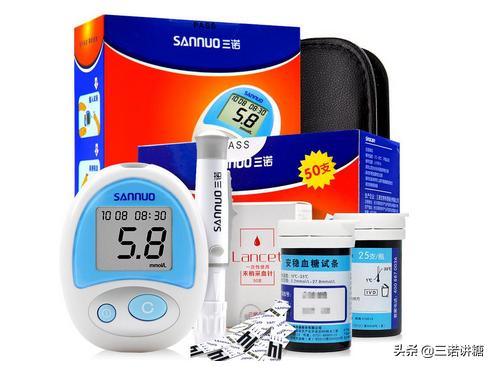
When is it appropriate to monitor blood glucose:
Many older diabetics are aware of the need to monitor fasting or pre-meal and two-hour post-meal blood glucose. Specifically:
1, fasting blood glucose: refers to overnight fasting for more than 8 hours, before breakfast blood glucose value. The blood glucose measured before dinner cannot be called fasting blood glucose.
2. Pre-meal blood glucose: refers to the blood glucose measured before breakfast, lunch and dinner.
3. Two-hour postprandial blood glucose: blood glucose measured two hours after breakfast, lunch and dinner.
4. Random blood glucose: blood glucose measured at any time of the day, e.g., before bedtime, midnight, etc.
It can be said that monitoring blood glucose is a very important thing in the process of diabetes control, because the results of blood glucose monitoring can be used to determine blood glucose control on the one hand, and on the other hand, it can also be used to guide the treatment.
Therefore, diabetics must monitor their blood sugar properly.
Thank you for reading this article, if you agree with the views expressed in the article, please give me a like, follow {Sano Sugar}, and if you have any questions, please invite me to answer them!
Diabetics need to buy a blood glucose tester, diabetics blood sugar control treatment is not good, high and low, with a blood glucose test is very convenient, can be measured at any time, sometimes several times a day measurement.
I'm a type 2 diabetic myself.
Blood glucose meters are indispensable for diabetics.
Controlling your blood sugar is a lifelong endeavor, so make sure you get one.
Monitor it at all times to keep a better grip on your mouth and legs.
One, you should totally get a tester. Two, test regularly for three to five days. Register the test results on a daily basis. If the test result exceeds the standard, take immediate action or ask your doctor.
The treatment of diabetic patients focuses on daily self-management, and an important element of daily self-management is the self-testing and recording of blood glucose levels. Self-testing, naturally, requires a home blood glucose meter. Patients have to take on certain preventive and therapeutic work in their own treatment process, and when self-management is accomplished well, treatment control is effective.
Self-testing of blood glucose is an important daily measure to assess whether blood glucose control is up to standard and to reduce or avoid the risk of hypoglycemia.
According to their own actual condition to comply with the doctor's instructions to test blood glucose, fasting blood glucose, blood glucose after meals, blood glucose before and after exercise, blood glucose before going to bed, blood glucose at night, etc., some patients need to be monitored more than 4 times a day, or even as high as 7 or 8 times. If you don't have your own blood glucose meter at home, how to realize the effective testing of blood glucose?
Some patients are prone to hypoglycemia, in addition to timely testing of blood glucose when symptoms of hypoglycemia occur, but also to test the preprandial blood glucose, some patients with better postprandial glycemic control will ignore the risk of hypoglycemia, especially elderly patients and patients with better glycemic control especially to prevent the risk of hypoglycemia.
Patients who exercise a lot should test their blood glucose before and after exercise. Before exercise, if your blood glucose is low, you should pay attention to controlling the amount and intensity of exercise, and you also need to replenish your energy; after exercise, you should especially pay attention to your blood glucose a few hours later to prevent the risk of exercise hypoglycemia. Without a blood glucose meter, these tests are difficult to achieve.
It is impossible for patients to go to the hospital every day or every week to check their blood glucose, and the financial burden and time cost can be very high. Some pharmacies can also test, but it is very inconvenient and there are hygiene hazards, and everyone uses it, and the monitoring data may not be accurate.
Self-blood glucose testing is also a self-monitoring management tool.
The blood glucose values recorded during the self-management process at various times and under different circumstances can provide a more adequate basis for the doctor's office treatment and facilitate accurate adjustment of the treatment plan.
In summary, diabetics should have their own blood glucose meter at home, which is a necessity, and learn to test and record it, and calibrate it regularly, once or twice a year.
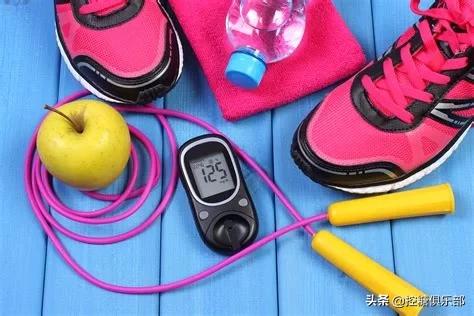
It's so necessary! I have an, elderly, diabetic at home! Keep a glucose meter for him too, to measure his blood sugar at all times!
This question and answer are from the site users, does not represent the position of the site, such as infringement, please contact the administrator to delete.